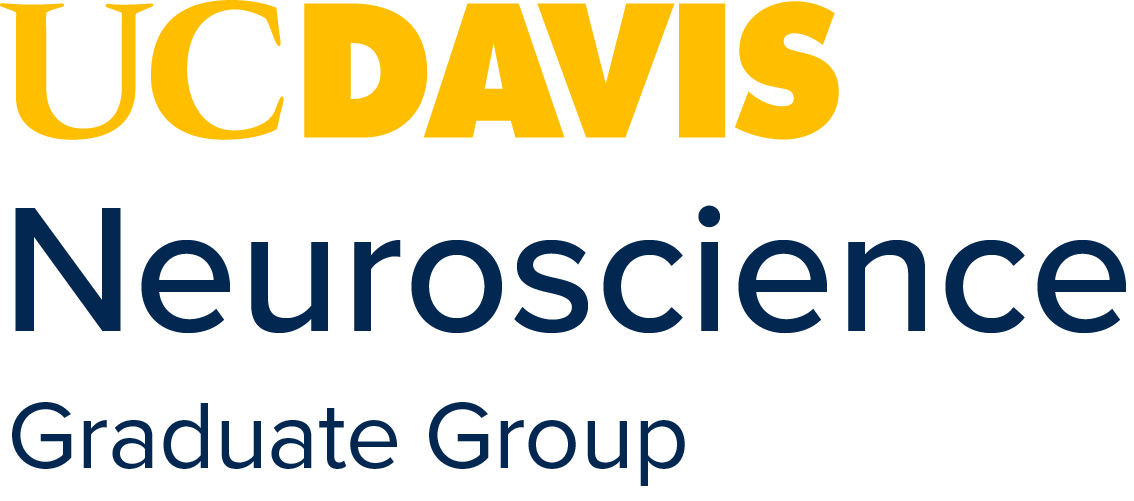Ph.D. Program
The Ph.D. degree is a research degree with specialized education in a particular discipline of neuroscience. Students may also apply for Professional Duel Degrees with the Physician Scientist Training Program (M.D./Ph.D.) and the Veterinary Scientist Training Program (DVM/Ph.D.).
Students may specialize in the following areas of neuroscience:
- cellular/molecular neuroscience
- developmental neuroscience
- systems neuroscience
- cognitive neuroscience
- behavioral neuroscience
- computational neuroscience
- neuroengineering
Normally, a student will complete course and teaching requirements during the first two years of the program, pass a written and oral Preliminary Examination given by five faculty members, then conduct and complete the dissertation research under the direction of a major professor, who serves as a research mentor. A thesis committee approves the dissertation, and the student delivers an exit seminar on this work to the graduate group to complete the degree. Full time students must enroll in a minimum of 12 units per quarter.
Course Requirements
- NSC 200LB - Laboratory Methods in Neurobiology
- NSC 201 - Neuroanatomy Lecture
- NSC 219 - Design to Data: Statistics for Modern Neuroscience Lecture
- NSC 221 - Cellular Neurophysiology Lecture
- NSC 222 - Systems Neuroscience Lecture
- NSC 223 - Cognitive Neuroscience Lecture
- NSC 226 - Molecular/Developmental Neuroscience Lecture
- NSC 298 - Responsible Conduct of Research Ethical Lecture Series Seminar
- One NSC Journal Club of Student's Choice
Lab Rotations
An important component of the philosophy of our Program is that students should have substantial discretion in selecting a thesis adviser. To accomplish this goal and to broaden the research experience of first year students, we encourage our students to explore their research interests through lab rotations. Students in the Neuroscience Graduate Group are able to rotate through one or two laboratories in their first quarter. The rotations involve projects designed by the student, in consultation with the faculty mentor. The purpose of the rotations is for the student to gain intellectual and research experience with the scientific issues that drive the laboratory, as well as to determine if the lab is a good fit for their thesis research.
Teaching Requirement
All Ph.D. students must serve as teaching assistants (TAs) for one quarter before they graduate. This requirement is usually met in the second year and students often TA courses offered by the Neurobiology, Physiology, and Behavior (NPB) section of the College of Biological Sciences. Many students find this experience to be highly educational and rewarding.
Preliminary and Qualifying Exams
The exam for advancement to candidacy for the Ph.D. degree consists of two parts: (1) Preliminary Exam: a knowledge-based written and short oral exam and (2) Qualifying Exam: a thesis proposal defense. The general-knowledge written/oral exam will be held at the end of the first year in June. The thesis proposal defense is expected to be completed within one year of passing the general knowledge exam.
Designated Emphases
Ph.D. students have the option of participating in the Designated Emphasis programs. Some options include Biotechnology (contact: Dr. Nitzan Shabek), or Biophotonics & Bioimaging (contact: Yi Xue), or Neuroengineering (contact: Dr. Erkin Seker) or Translational Research (contact: Angela Sharma)
Research and Dissertation
The research project and the resulting dissertation represent the development from student to professional scientist. Graduate students who have advanced to candidacy devote their energies almost exclusively to completing their research projects.
After advancing to candidacy, students are required to meet with their dissertation committee at least once a year to discuss the thesis project, to review results, and to chart research directions. The dissertation committee is composed of 5 faculty members. Of these 5, one must be the thesis adviser, who serves as chair of the committee and one must come from outside of the Neuroscience Graduate Group. The person from outside the group can be selected from any other graduate group at UC Davis or from a different University.
In the final years of the program, students complete a dissertation based on original laboratory research, on average taking 5-6 years to complete the doctoral program. Upon completion of the research project, a written dissertation reporting the results of the thesis research must be presented to the dissertation committee. Approval by the committee and presentation of a formal seminar on this research to the Graduate Group fulfills the requirements of the program. Successful candidates will be awarded a Ph.D. in Neuroscience.

